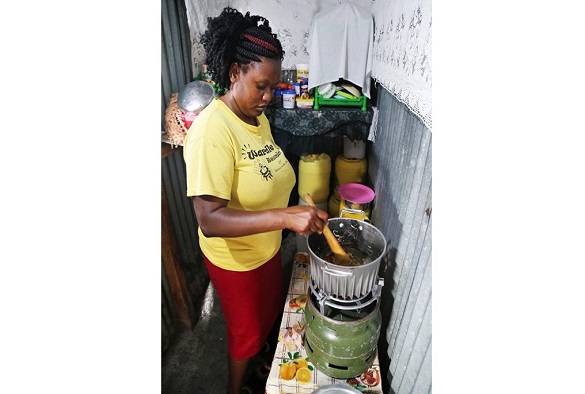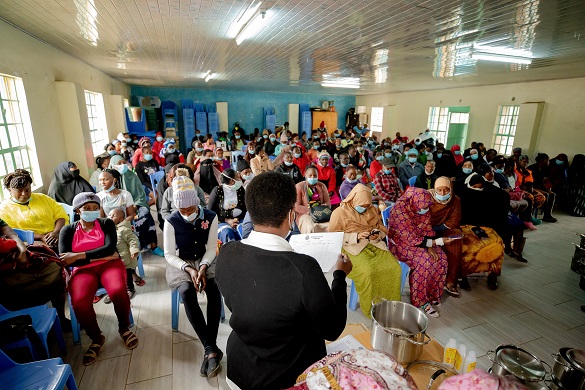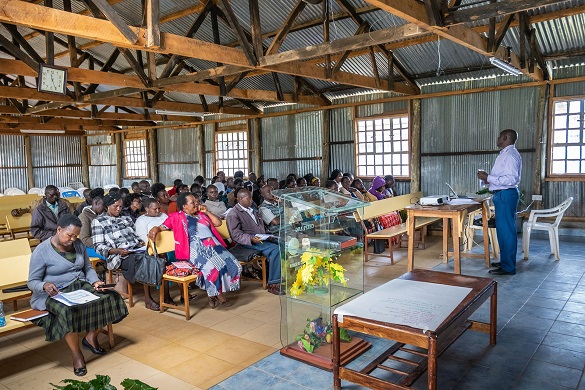Positive feedback for Kenyan clean cooking technology for health project
Published on

An innovative trial of new fuel efficient cookware to help households in Nairobi switch to clean energy for cooking has received positive feedback from participants.
The trial was conducted by researchers from the University of Liverpool and Amref International University in Kenya in Mukuru, one of the largest clusters of informal settlements in Nairobi.
For the trial, 300 cooks tested the performance of two new fuel-efficient pots against their traditional pots (‘sufuria’ in Swahili) to see if they could lead to fuel, cost and time savings.
Dr Elisa Puzzolo, from the University’s Department of Public Health, Policy & Systems is leading the project.
She said: “Each pot has the potential to save both time and fuel during cooking encouraging households to displace current use of polluting fuels such as wood and charcoal, known as `fuel stacking’. This practice leads to high levels of health damaging ‘household air pollution’ even in households that have access to clean gas for cooking.”
To celebrate the completion of the innovative trial, participants were entered into a raffle to receive either one of the intervention pots or a brand new sufuria pot to thank them for their participation in the study.
Professor Dan Pope, Director of the NIHR CLEAN-Air(Africa) Global Health Research Group, said: “The pots were well liked by the community with some excellent feedback on their potential to save fuel. In fact we have been approached by a number of people asking where they can buy them.”
Professor Pope added: “We are looking at a range of technical and financial innovations to overcome barriers to switching to clean household energy for health in Africa. We are currently conducting research in Kenya, Ghana, Tanzania and Cameroon where governments are implementing clean energy policies to benefit environment, climate and public health.”
"Early positive findings are being discussed with the US manufacturers of the cooking pots with a view to making them available in the Kenyan urban context. Results will be published in January 2022."

Household air pollution is causally related to disease and mortality in African settings reliant on these solid fuels (e.g. firewood or charcoal) and particularly affects women and children due to traditional domestic roles. In Kenya alone 23,000 premature deaths annually as associated with this cooking smoke.
The enhanced cooking pot study is part of a University programme to support resource poor households transition to clean cooking in sub-Saharan Africa.
The project is part of the Energy, Air Pollution and Health Research Group and linked to its flagship CLEAN-Air(Africa) project (www.cleanairafrica.com), funded by UK FCDO Modern Energy Cooking Services (MECS) programme.
For more information about the study or any other aspect of the research program please contact Dr Elisa Puzzolo (puzzoloe@liverpool.ac.uk) or Professor Dan Pope (danpope@liverpool.ac.uk).
